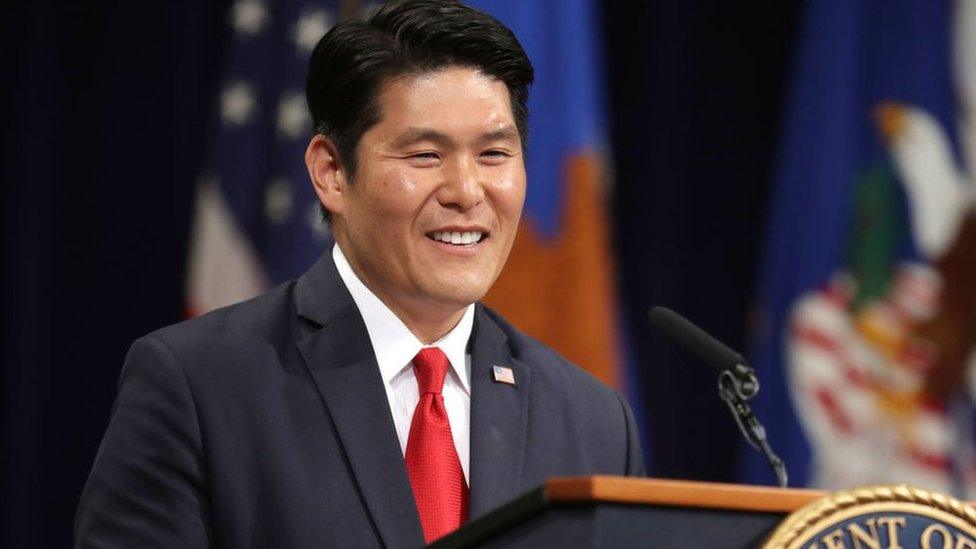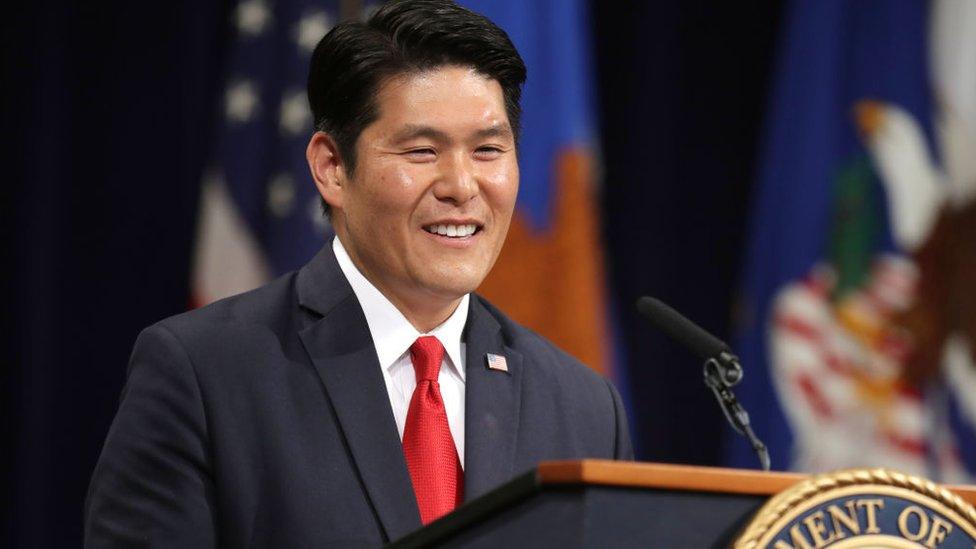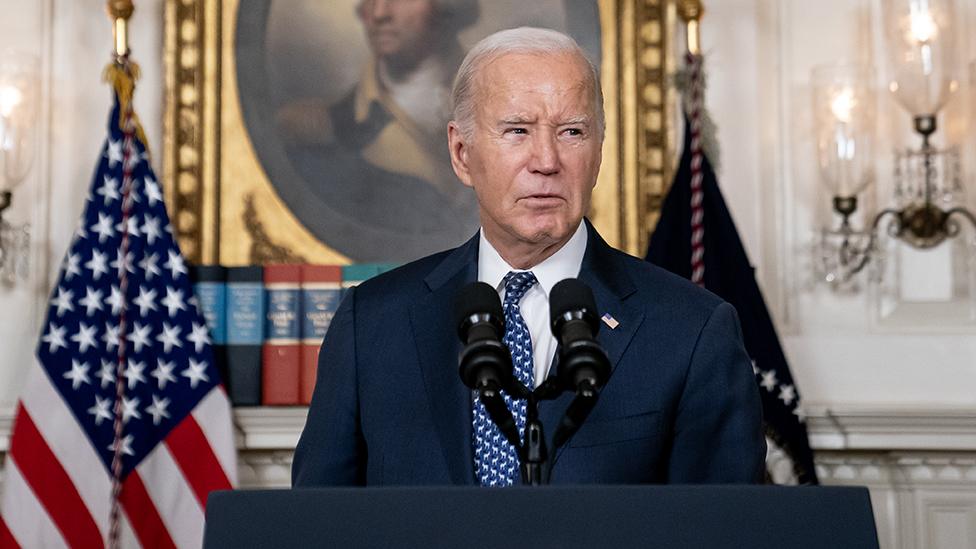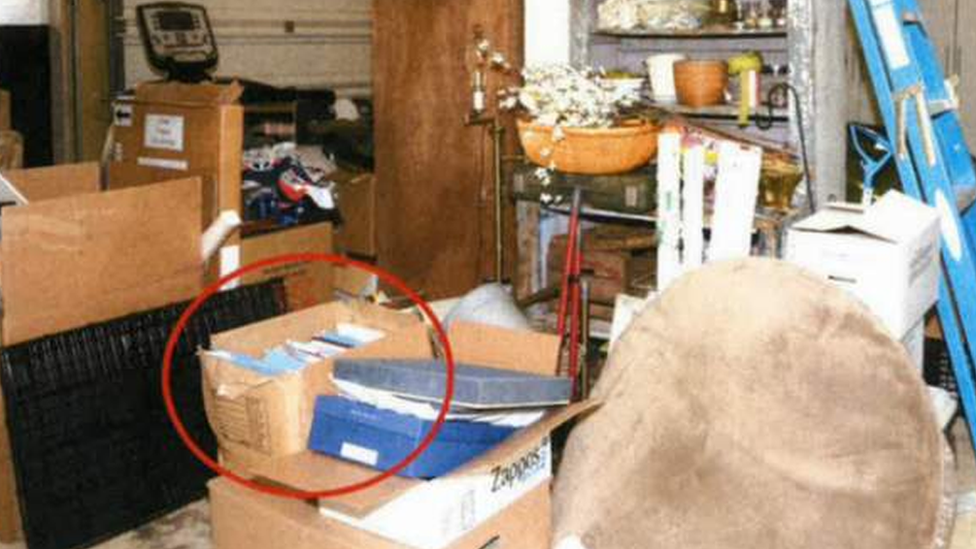Robert Hur to testify on Biden's classified documents and memory lapses
- Published

In his report, Robert Hur said president Joe Biden's recall of certain events is "extremely limited"
Special Counsel Robert Hur, who was tasked with probing president Joe Biden's handling of classified documents, is set to testify before Congress in March.
US media reported that Mr Hur will testify before the Republican-led House Judiciary Committee on March 12.
The news follows Mr Hur's report in which he raised questions about the president's memory and mental fitness.
The 345-page report provoked a strong reaction from Mr Biden.
"I know what the hell I'm doing. I've been president and I put this country back on its feet. I don't need his recommendation," the president said last week.
House Republicans have indicated that they intend to ask Mr Hur about his comments on the president's memory.
They have also asked him to turn over recordings and transcripts of his interviews with Mr Biden, which he made during his year-long investigation.
The report, which was published by the US Justice Department last week, said that Mr Biden would not face any criminal charges over "willfully" retaining and disclosing classified materials as a private citizen.
The bombshell aspect of the report centred on one of the reasons Mr Hur gave for not prosecuting the 81-year-old president: Mr Biden's memory.
The special counsel wrote that Mr Biden would likely be viewed as a "well-meaning, elderly man with a poor memory" by a jury, not as an individual who had committed a crime.
That characterisation - one of the biggest issues facing his re-election campaign - did not sit well with Mr Biden, his allies, or his attorneys.
A letter sent by White House Counsel Ed Siskel to Attorney General Merrick Garland prior to the release of Mr Hur's report accused the special counsel of "openly, obviously, and blatantly" violating the Justice Department's own policies by making comments about Mr Biden's mental capacity, according to reports by Politico and the New York Times.
"The Special Counsel can certainly and properly note that the President lacked memory of a specific fact or series of events," wrote Mr Siskel in the letter, which was penned on 7 February but first reported on Thursday.
"But his report goes further to include allegations that the President has a failing memory in a general sense, an allegation that has no law enforcement purpose."
The White House did not respond to a request for comment.
Mr Hur's report was penned after a year-long inquiry into Mr Biden's handling of classified documents from his time as vice-president, which included interviews with the president.
In it, the special counsel concluded that Mr Biden, 81, had "wilfully" retained classified files after leaving the vice-presidency in 2017. He then emphasised he would struggle to secure a conviction because of Mr Biden's age, mental fitness, and demeanour.
At times, he used specific moments that Mr Biden and his allies said were deeply personal.
In one passage, he provided a pointed example of the president's memory, writing that Mr Biden did not remember "even within several years when his son Beau died".
The report has buoyed criticism by some Republicans, who questioned Mr Biden's mental capabilities and his old age as he vies for a second term in the White House.
Meanwhile, Democrats have accused Mr Hur, a Republican who was previously tapped by former president Donald Trump for the role of US attorney for the District of Maryland, of political bias.
Following the release of the report, Mr Biden held a surprise news conference in which he forcefully declared: "My memory is fine."
"How the hell dare he raise that?" the president added, referring to the claim that he could not remember when his son died.
Related topics
- Published10 February 2024

- Published9 February 2024

- Published9 February 2024
